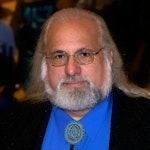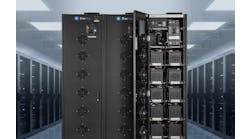Sabey Data Centers' New Campus Will Be Home to the World’s Latest Academic Supercomputer
Sabey Data Centers, who offers both colocation data centers and powered shells for dedicated customer facilities, has been chosen to be the colocation partner for the next generation Leadership-Class Computing Facility (LCCF), funded by the National Science Foundation (NSF) and the site of the next-generation Horizon supercomputer.
SDC Austin
The SDC Austin Campus, a multi-building project currently under construction, has been purpose-built to support hyperscale and enterprise customers, with high-density cooling of 100 kW per cabinet to allow for the deployment of HPC, AI, and supercomputer applications.
The campus will cover 430,000 square feet and have 84 MW of data center power available for critical IT loads.
The location currently supports no fewer than five top tier network providers with additional providers coming online. On-site carrier Meet-Me rooms are available and there are dual campus fiber entries and redundant pathways available to customers.
SDC Austin is located in Round Rock, Texas a centrally located region with access to reasonably priced power and the resources of the City of Austin and the local university campus.
The LCCF hosted at SDC Austin means that the data center campus will be at the forefront of revolutionizing computational research and academic supercomputing, with both the Horizon supercomputer and future systems, for at least the next decade.
Dan Stanzione, Executive Director of TACC and Associate Vice President for Research at UT Austin tells us:
“We have entered a unique partnership with Sabey to leverage all the advantages of colocation with our very specific needs for cutting edge, high-density supercomputing. The demands of AI have driven the commercial data center space to look more like supercomputing data centers—liquid cooling, high density, and high efficiency. We look forward to an innovative and productive partnership as we venture off campus and work ever more closely with the private sector.”
What Is a Leadership Class Computing Facility?
The Leadership Class Computing Facility (LCCF) is a National Science Foundation funded initiative (to the tune of $457 million) focused on revolutionizing the next generation of computation research and development.
Development of the facility on the Sabey SDC Austin campus will be led by the Texas Advanced Computing Center (TACC) at the University of Texas at Austin. More than just a hardware deployment, the LCCF wil include significant software and services min order to maximize the utility of the LCCF, with the facility and the new Horizon supercomputer being open to all scientists and engineers nationwide, with time allocations being decided by a peer review process.
According to NSF Director Sethuraman Panchanathan, "LCCF represents a pivotal step forward in our mission to support transformative research across all fields of science and engineering. This facility will provide the computational resources necessary to address some of the most pressing challenges of our time, enabling researchers to push the boundaries of what is possible."
The LCCF will work collaboratively with four additional university science centers, with a solid regional distribution footprint, to leverage the existing expertise available in the US cyberinfrastructure, with additional input from Ohio State University on software development and Cornell University for workforce development. The four additional centers are as follows:
- Atlanta University Center (AUC) Data Science Initiative at the AUC Consortium, a collaboration of four historically Black colleges and universities: Clark Atlanta University, Spelman College, Morehouse College and Morehouse School of Medicine.
- National Center for Supercomputing Applications at the University of Illinois Urbana-Champaign.
- Pittsburgh Supercomputing Center, a joint center of Carnegie Mellon University and the University of Pittsburgh.
- San Diego Supercomputer Center at the University of California San Diego.
What is the Horizon Supercomputer?
Horizon is the follow-on for the Frontera supercomputer, a petascale research computer that was deployed in 2019 and is also operated by TACC. Horizon is expected to provide a 10-fold performance improvement over Frontera for scientific computing, which is rated using double precision calculations.
AI capabilities generally require only single precision, which, combined with the significant performance improvements in GPUs since Frontera was deployed, means that the expectation is for greater than 100X improvement in AI performance.
Horizon is planned to go into operation in 2026, and at this time full details on the hardware specifications of the supercomputer are not available. It can be expected that Intel, AMD, and Nvidia are all involved in this next-generation academic tool.
DCF and SDC Next Month in Virginia
Sabey Data Centers will be hosting a guided tour of the SDC Ashburn facility at the 2024 Data Center Frontier Trends Summit conference, being held September 4-6 in Reston, Virginia. Interest in Sabey is such that the tour has completely sold out.






